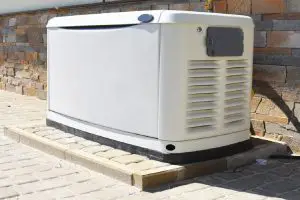Standby generators come in handy when the main power goes out during emergency situations. Having a standby generator on hand can help avoid costly business interruptions and keep your family safe and comfortable during extended power outages. There are different types of standby generators, which you can learn about below.
1. Portable Standby Generator
Portable standby generators can be moved from one location to another. They are commonly used to provide backup power for homes and businesses in case of a power outage. They may need to be manually started and usually run on gasoline. Portable standby generators are usually large and situated on a trailer that can be towed by a small vehicle from one location to another.
2. Permanent Standby Generator
Permanent standby generators are standby generators that are intended to run for long periods of time. They are usually powered by natural gas or propane, and they can provide power for an extended period of time in the event of a power outage. Permanent standby generators are typically more expensive than portable standby generators due to higher installation costs. Permanent standby generators are installed on a concrete slab next to the facility and are not meant to be moved.
3. Natural Gas Standby Generator
Standby generators powered by natural gas are a great option for those who want a reliable power source that won’t break the bank. Natural gas standby generators are typically more affordable than their diesel-powered counterparts, and they’re also more environmentally friendly.
When the power goes out, your standby generator will automatically kick in and provide the power you need to keep your home or business running
4. Liquid Propane Standby Generator

Standby generators powered by liquid propane are an excellent choice for those who want a reliable power source that is both affordable and easy to use. Liquid propane standby generators are a popular choice for many homeowners and businesses because they are relatively inexpensive to operate and maintain. In addition, liquid propane standby generators can be easily started and stopped, making them ideal for emergency situations.
5. Gasoline Standby Generator
Standby generators are usually powered by natural gas or propane, which provides a cost-effective and reliable power source. However, standby generators can also be powered by gasoline, but this is not as common due to the higher fuel costs.
Standby generators powered by gasoline are common in many homes and businesses. Gasoline standby generators are a great way to have backup power in case of an emergency. Gasoline standby generators can be used for a variety of purposes, including powering your home, RV, or workshop.
6. Air-Cooled Standby Generator
Air-cooled standby generators operate by running a gas or diesel engine to turn a generator to create electricity. The generator is usually encased in a sound-dampening enclosure to minimize noise. These generators are kept cool by fans that blow air through the unit to avoid overheating it when running for long periods.
Air-cooled standby generators are typically used for backup power in residential and small business applications and can provide power for several days in the event of a power outage.
7. Liquid-Cooled Standby Generator
Standby generators that are liquid-cooled require a cooling system to prevent the generator from overheating. The cooling system consists of a radiator, water pump, and thermostat. The radiator is usually mounted on the side of the standby generator and uses air to cool the engine coolant. The water pump circulates the engine coolant through the radiator and back to the engine.
To Close
There are different types of standby generators available to purchase for your home or office. Since these are significant investments to make, you want to be sure you are getting the one that fits your needs and lifestyle.

